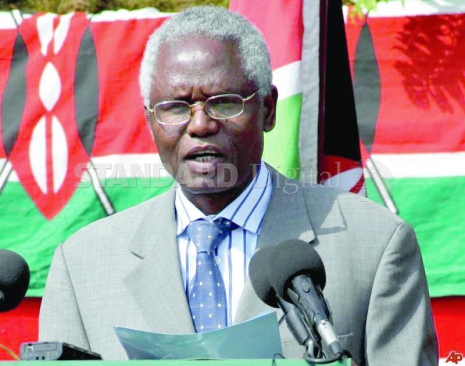×
The Standard e-Paper
Home To Bold Columnists

Former Secretary to the Cabinet Francis Muthaura has for the first time spoken about the palpable anxiety surrounding the disputed 2007 election results.
He remembers former presidents Daniel arap Moi and Mwai Kibaki as humble leaders who served the nation selflessly.